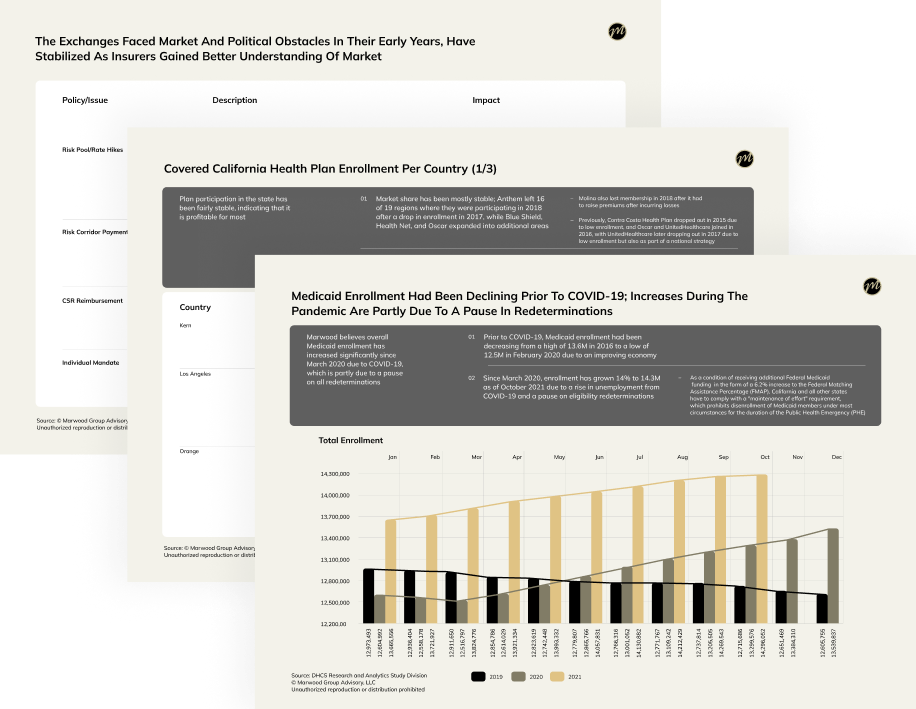We provide an outlook for federal and state legislative and regulatory action across all healthcare subsectors
We work to help our clients understand and evaluate risks and opportunities as a result of actions by Congress, the White House and executive branch agencies such as the Health and Human Services Agency, the Centers for Medicare and Medicaid Services, and the Food and Drug Administration, as well as state-level actions by legislatures, governors and state agencies.
Our Healthcare Policy team is comprised of former White House, executive branch agency, senior congressional staff and senior state Medicaid officials that combine a comprehensive understanding of the current legislative and regulatory environment with industry-leading outlook into catalysts and the key changes they drive
See How Marwood Advised a Private Equity Firm on an Investment in a Risk Bearing Provider…
Marwood Case Study
Engagement Purpose
A private equity firm was considering an investment in a California-based provider-led managed care network that administers healthcare services through its network of medical groups, independent physician associations, urgent care facilities, and affiliated health plans.
Marwood Analysis
- Evaluated federal-level implications, including political effects on Medicare, Medicare Advantage (MA), and Exchanges have on risk-bearing providers
- Engaged with state-level stakeholders around dynamics between Medicaid expansion and state-run exchanges, as well as licensing requirements
- Interviewed executives at commercial and MA plans to determine the sustainability of economic drivers of the Company’s MA and commercial business
Key Findings
Marwood found that the multiple potential risks facing the MA program were all unlikely to affect the Company in a negative way, mainly because slim (and waning) Democrat Congressional majorities would be effectively powerless in the short-term, with regards to MA. Marwood also determined that both MA and commercial plans viewed the Company’s delivery model positively, and that while there could be changes to the Medicaid managed care system, none would hurt the Company.
